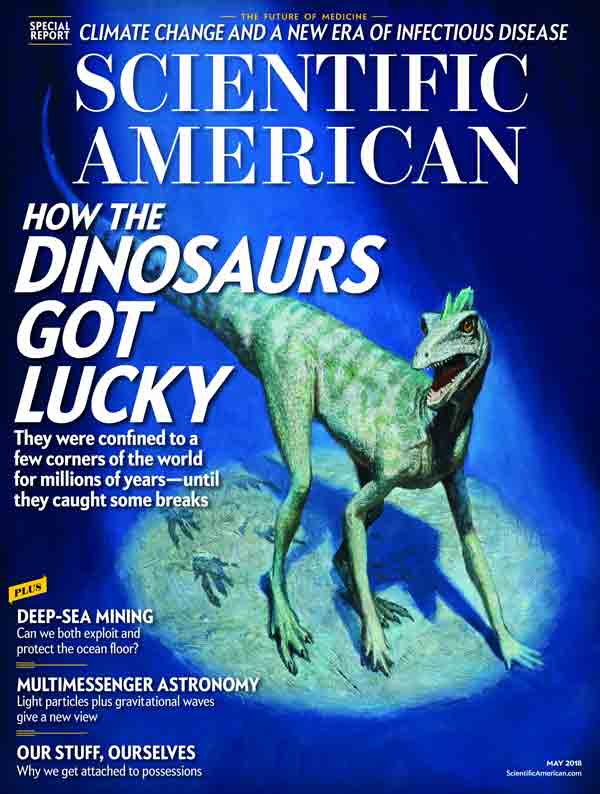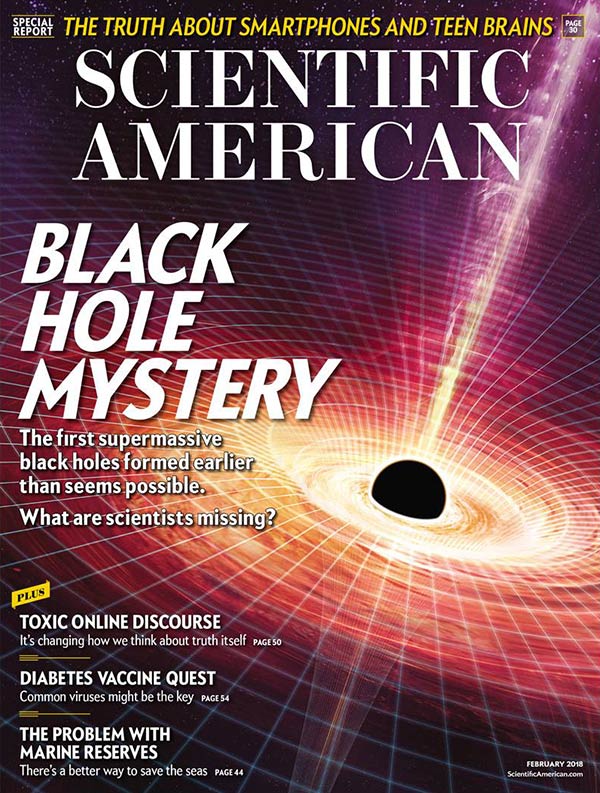Google as a window into our private thoughts
What are the weirdest questions you’ve ever Googled? Mine might be (for my latest book): “How many people have ever lived?” “What do people think about just before death?” and “How many bits would it take to resurrect in a virtual reality everyone who ever lived?” (It’s 10 to the power of 10123.) Using Google’s autocomplete and Keyword Planner tools, U.K.-based Internet company Digitaloft generated a list of what it considers 20 of the craziest searches, including “Am I pregnant?” “Are aliens real?” “Why do men have nipples?” “Is the world flat?” and “Can a man get pregnant?”
This is all very entertaining, but according to economist Seth Stephens-Davidowitz, who worked at Google as a data scientist (he is now an op-ed writer for the New York Times), such searches may act as a “digital truth serum” for deeper and darker thoughts. As he explains in his book Everybody Lies: Big Data, New Data, and What the Internet Can Tell Us About Who We Really Are (Dey Street Books, 2017), “In the pre-digital age, people hid their embarrassing thoughts from other people. In the digital age, they still hide them from other people, but not from the internet and in particular sites such as Google and PornHub, which protect their anonymity.” Employing big data research tools “allows us to finally see what people really want and really do, not what they say they want and say they do.” (continue reading…)
read or write comments (8)
Utilitarianism and its discontents
Would you cut off your own leg if it was the only way to save another person’s life? Would you torture someone if you thought it would result in information that would prevent a bomb from exploding and killing hundreds of people? Would you politically oppress a people for a limited time if it increased the overall well-being of the citizenry? If you answered in the affirmative to these questions, then you might be a utilitarian, the moral system founded by English philosopher Jeremy Bentham (1748–1832) and encapsulated in the principle of “the greatest good for the greatest number.”
Modern utilitarianism is instantiated in the famous trolley thought experiment: You are standing next to a fork in a trolley track and a switch to divert a trolley car that is about to kill five workers unless you throw the switch and divert the trolley down a side track where it will kill one worker. Most people say that they would throw the switch—kill one to save five. The problem with utilitarianism is evidenced in another thought experiment: You are a physician with five dying patients and one healthy person in the waiting room. Would you harvest the organs of the one to save the five? If you answered yes, you might be a psychopathic murderer.
In a paper published online in December 2017 in the journal Psychological Review entitled “Beyond Sacrificial Harm,” University of Oxford scholars Guy Kahane, Jim A. C. Everett and their colleagues aim to rehabilitate the dark side of utilitarianism by separating its two dimensions: (1) “instrumental harm,” in which it is permissible to sacrifice the few to benefit the many, and (2) “impartial beneficence,” in which one would agree that “it is morally wrong to keep money that one doesn’t really need if one can donate it to causes that provide effective help to those who will benefit a great deal.” You can find out what type you are by answering the nine questions in the authors’ Oxford Utilitarianism Scale. I scored a 17 out of a possible 63, which was at the time described as meaning “You’re not very utilitarian at all. You Kant be convinced that maximising happiness is all that matters.” (continue reading…)
read or write comments (1)
A response to Massimo Pigliucci’s critique of my Scientific American column on utilitarianism, deontology, and rights. (Illustration above by Izhar Cohen.)
My May 2018 column in Scientific American was titled “You Kant be Serious: Utilitarianism and its Discontents”, a cheeky nod to the German philosopher that I gleaned from the creators of the Oxford Utilitarianism Scale, whose official description for those of us who score low on the scale read: “You’re not very utilitarian at all. You Kant be convinced that maximizing happiness is all that matters.” The online version of my column carries the title (which I have no control over): “Does the Philosophy of ‘the Greatest Good for the Greatest Number’ Have Any Merit?” The answer by any reasonable person would be “of course it does!” And I’m a reasonable person, so what’s all the fuss about? Why was I jumped on by professional philosophers on social media, such as Justin Weinberg of the University of South Carolina on Twitter @DailyNousEditor, who fired a fusillade of tweets, starting with this broadside:
I sent a private email to Justin inviting him to write a letter to the editor of Scientific American that I could then respond to—given that Twitter may not be the best medium for a discussion of important philosophical issues—but I never received a reply. (continue reading…)
read or write comments (3)
Science reveals our deepest purpose
In a flashback scene in the 1977 film Annie Hall, Woody Allen’s character Alvy Singer is a depressed young boy who won’t do his homework because, as he explains to his doctor: “The universe is expanding…. Well, the universe is everything, and if it’s expanding, someday it will break apart, and that will be the end of everything.” His exasperated mother upbraids the youth: “What has the universe got to do with it?! You’re here in Brooklyn. Brooklyn is not expanding!”
Call it “Alvy’s Error”: assessing the purpose of something at the wrong level of analysis. The level at which we should assess our actions is the human timescale of days, weeks, months and years—our life span of fourscore plus or minus 10—not the billions of years of the cosmic calendar. It is a mistake made by theologians when arguing that without a source external to our world to vouchsafe morality and meaning, nothing really matters.
One of the most prominent theologians of our time, William Lane Craig, committed Alvy’s Error in a 2009 debate at Columbia University with Yale University philosopher Shelly Kagan when he pronounced: “On a naturalistic worldview, everything is ultimately destined to destruction in the heat death of the universe. As the universe expands, it grows colder and colder as its energy is used up. Eventually all the stars will burn out, all matter will collapse into dead stars and black holes, there will be no life, no heat, no light—only the corpses of dead stars and galaxies expanding into endless darkness. In light of that end, it’s hard for me to understand how our moral choices have any sort of significance. There’s no moral accountability. The universe is neither better nor worse for what we do. Our moral lives become vacuous because they don’t have that kind of cosmic significance.” (continue reading…)
read or write comments (23)
A Response to George Ellis’s Critique of My Defense of Moral Realism
This article appeared in Theology and Science in December 2017.
I am deeply appreciative that University of Cape Town professor George Ellis took the time to read carefully, think deeply, and respond thoughtfully to my Theology and Science paper “Scientific Naturalism: A Manifesto for Enlightenment Humanism” (August, 2017),1 itself an abbreviation of the full-throated defense of moral realism and moral progress that I present in my 2015 book, The Moral Arc.2 As a physicist he naturally reflects the methodologies of his field, wondering how a social scientist might “discover” moral laws in human nature as a physical scientist might discover natural laws in laboratory experiments. It’s a good question, as is his query: “Is it possible to say in some absolute sense that specific acts, such as the large scale massacres of the Holocaust, are evil in an absolute sense?”
Pace Abraham Lincoln, who famously said “If slavery is not wrong, then nothing is wrong,”3 I hereby declare in an unequivocal defense of moral realism:
If the Holocaust is not wrong, then nothing is wrong.
Since Professor Ellis is a physicist, let me approach this defense of moral realism from the perspective of a physical scientist. It is my hypothesis that in the same way that Galileo and Newton discovered physical laws and principles about the natural world that really are out there, so too have social scientists discovered moral laws and principles about human nature and society that really do exist. Just as it was inevitable that the astronomer Johannes Kepler would discover that planets have elliptical orbits—given that he was making accurate astronomical measurements, and given that planets really do travel in elliptical orbits, he could hardly have discovered anything else—scientists studying political, economic, social, and moral subjects will discover certain things that are true in these fields of inquiry. For example, that democracies are better than autocracies, that market economies are superior to command economies, that torture and the death penalty do not curb crime, that burning women as witches is a fallacious idea, that women are not too weak and emotional to run companies or countries, and, most poignantly here, that blacks do not like being enslaved and that the Jews do not want to be exterminated. Why? […]
To continue reading this article, download the PDF.
Download the PDF
Comments Off on Mr. Hume: Tear. Down. This. Wall.




